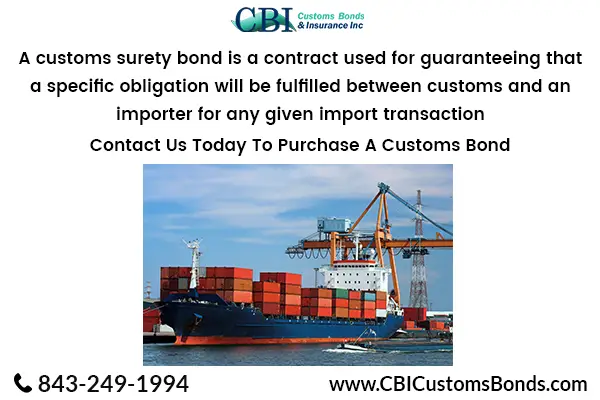Importing goods and products into the United States can be a really difficult experience for new importers. For new traders, it is not easy to understand and clear the process at first attempt. Even it’s not easy for experienced importers because there is always an extensive procedure associated when it comes to taking foreign merchandise inside this country.
You might have heard of many stories of goods being charged heavy duties, held for months at entry port, and even seized. However, these scenarios can be avoided by knowing and following everything instructed and required. 301 Customs bond is an important document along with the tax identification number (importer number). Insufficient documents and errors in paperwork may lead your merchandize to serious penalties and long delay.
Customs Bonds
Importing merchandise requires importers to obtain a customs surety bond. All the commercial imports that are valued over $2,500 are required by the U.S. Customs and Border Protection (CBP) to post a sufficient 301 customs bond. The federal agency is responsible to organize lawful international trade. It was established in 2003 as the largest federal law enforcement agency of the United States Department of Homeland Security.
Why importers need one?
During importation, the government wants you to pay all the valid duties and taxes levied on your cargo. Customs surety bond is similar to an insurance policy that guarantees the federal agency CBP that it would be able to collect all the duties, taxes, and fines by the importer. It is an agreement between three parties – importer (principal), insurance company/surety/freight forwarder/broker, and the CBP.
Customs bonds are mandatory document while importing via ocean or by air. In an event, if the shipper fails to pay duties and taxes, CBP will be able to collect the bond amount from the surety company. Importers need a customs surety bond to guarantee financial obligations as well as to be in compliance with laws, provisions, and regulations. For products and items that are subjected to the requirement of other federal agencies such as Food and Animals, importers may have to comply with additional bond requirements.
There are two types of bonds mainly used for international shipment – Single Entry Bond and Continuous Import Bond.
How to obtain one?
It is not that difficult to obtain a customs bond. A licensed broker or freight forwarding company can help you in acquiring a valid bond. If you’re going to import regularly, it is advised to consider a continuous import bond which is valid for all imports during a period of one year.
Without a proper bond and coverage, it would be impossible for you to clear customs entry. It will only lead to fines and delays.






